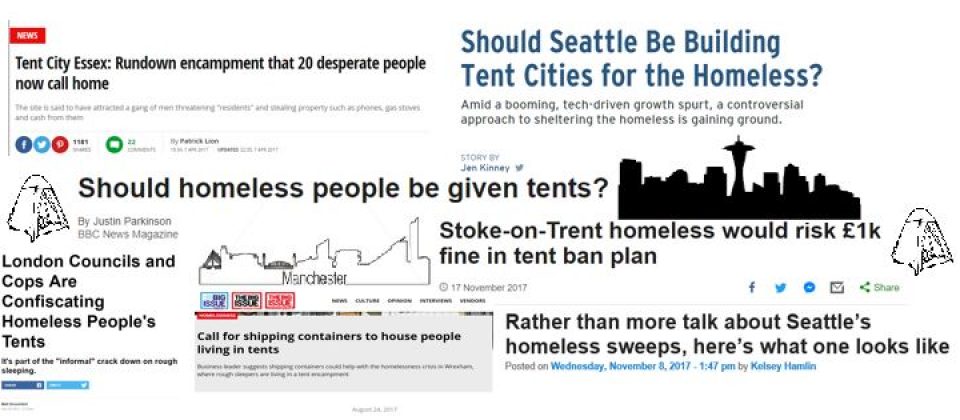Melissa Espinoza, PhD Candidate, School of Energy, Geoscience, Infrastructure and Society; Institute for Social Policy, Housing, Equalities Research at Heriot Watt University
The visibility of tents in public urban spaces and the homeless population has continued to rise in Seattle, USA and Manchester, UK. In both cities there is intense debate over how tent rough sleeping should and has been recently handled by local authorities and the third sector. Academic literature and the media have often focused on the formation of encampments as symbolic forms of protest of the Occupy Movement, self-organised homeless led communities, and as symptoms of poor policy. However, a gap remains in understanding the perspective of encampments from different stakeholders in the community as well as those who utilise a tent outside of an established encampment community. This case study aims to contribute to the understanding of how tents play a role in rough sleeping homelessness experience, why local authorities have taken criminalisation efforts to reduce encampment homelessness and what efforts are being made by different stakeholders to address the rise in tent usage in public spaces. This research aims to contribute to the way these cities address encampments and to improve informed tactics that are used to help people move into adequate housing from street homelessness.


Leave a Reply